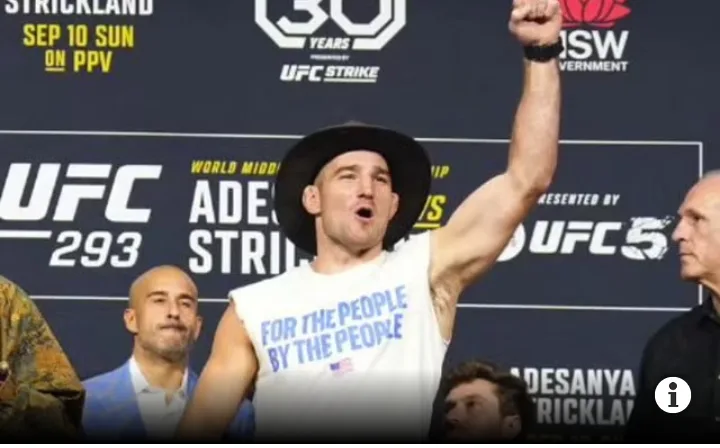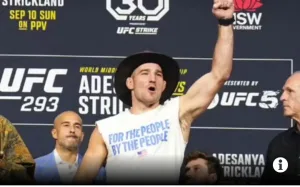
Just in:Sean Strickland has finally explains his hesitation for removing “black homeless” man from his area: “I have a zero tolerance”…

Sean Strickland, a prominent figure in the MMA community, recently made headlines not just for his performance inside the octagon but for his controversial stance on a social issue.
Strickland’s comments about his hesitation to remove a “black homeless” man from his area reflect a complex interplay of personal beliefs and broader societal issues.
Strickland’s initial reluctance to remove the individual stemmed from his professed “zero tolerance” policy toward what he perceives as unnecessary or unwarranted actions.
He has a strong stance on maintaining personal boundaries and upholding his own set of values, which includes a strict adherence to his principles about how to handle social issues.
In this context, his hesitation was partly due to his reluctance to engage in what he saw as potentially punitive or discriminatory behavior.
In addressing the situation, Strickland emphasized that his decision was not rooted in racial prejudices but rather in his broader philosophical stance on social responsibility and personal freedom.
He has argued that his actions should be guided by a commitment to fairness and respect for individual rights, regardless of the person’s background or circumstances.
This approach reflects a belief in treating people with dignity and avoiding actions that could be perceived as unjust or discriminatory.
Strickland’s comments sparked a broader discussion about the intersection of personal values and societal issues.
On one hand, his position highlights a desire to act with empathy and fairness. On the other hand, it raises questions about the practical implications of his “zero tolerance” policy and how it translates into real-world actions.
Critics argue that while his intentions might be rooted in a desire to uphold principles, the implementation of such policies could inadvertently contribute to systemic issues, including discrimination and social inequality.
In grappling with this issue, it’s important to recognize the broader context in which these decisions are made.
The challenges faced by homeless individuals, particularly those from marginalized communities, are complex and multifaceted.
Effective solutions require a nuanced understanding of the social and economic factors at play, as well as a commitment to addressing these issues through systemic change rather than solely individual actions.
Strickland’s hesitation and the subsequent explanation offer a window into the broader conversation about how we address homelessness and social inequality.
His stance underscores the need for a balanced approach that considers both individual rights and the collective responsibility to address societal challenges.
It also highlights the importance of engaging in these discussions with a clear understanding of the implications and potential consequences of our actions.
In summary, Sean Strickland’s explanation of his hesitation to remove the “black homeless” man from his area reflects a broader tension between personal principles and societal issues.
His commitment to a “zero tolerance” policy, while grounded in a desire for fairness, also invites critical examination of how such policies are applied in practice.
This situation serves as a reminder of the need for thoughtful and empathetic approaches to complex social problems.







